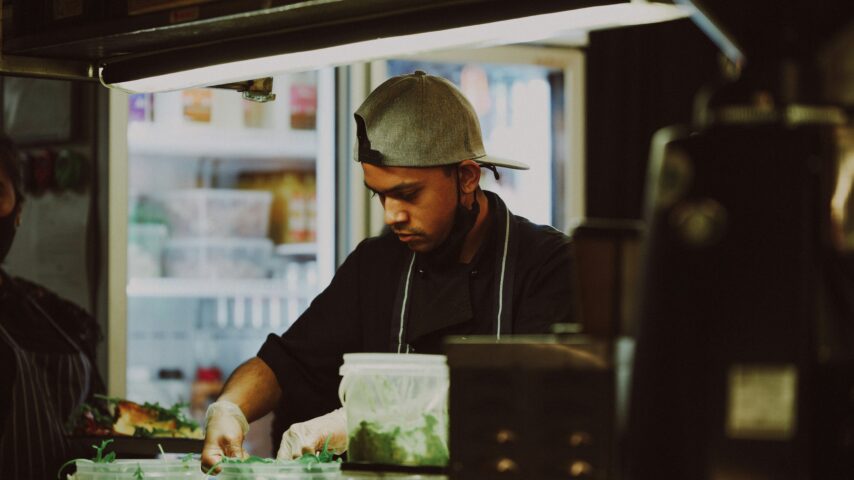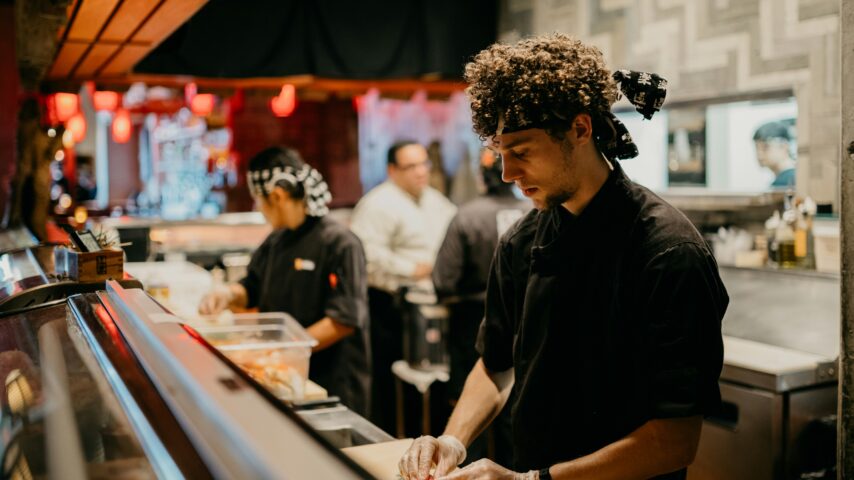In this article
Reporting is a consistently hot topic in the restaurant industry. What are the right metrics to report on? How do those reports get circulated to the right people? How do they help the business grow?
In this article, we’ll break down how we’ve seen restaurants successfully implement reporting processes and what reports to focus on.
What is restaurant reporting?
Firstly, what do we mean by restaurant reporting? Depending on the size of the business, these are reports compiled by the founder or MD or Finance team to gauge business performance on a daily, weekly, monthly and yearly basis.
They will usually consist of a set of KPIs (key performance indicators) that the business has decided to focus on. These can range from general topline numbers to very granular metrics. For example, hospitality businesses may track daily sales numbers as a topline number as well as sales per labour hour for more granularity.
The benefits of more granular reports are that they’re easy to show trends and inefficiencies that can be improved, but they are difficult to compile regularly.
Why do restaurants need to focus on reporting?
Reporting is a must if you want to get insights out of the mountains of raw data you generate. In a tight-margined industry like hospitality gaining visibility over your business through robust reporting is the best way to reduce inefficiencies and double down on what works.
Reduce inefficiencies
When you overlay data from different sources in your reports, you’re able to see trends and insights that could help reduce inefficiencies. The most common areas of improvement we see at Tenzo are in staffing and food waste.
Layering your labour hours over hourly or daily sales trends can show where you might be over or understaffing. Matching labour hours up with sales demand is the best way to make sure both your customers and your employees are happy, with quick service for guests and reduced stress for staff.
When it comes to ordering ingredients, if you have a good grasp of your daily sales mix, you can be sure to always have enough stock on hand while also avoiding costly food waste. Plus, by tracking your purchases over time, you can see if ingredients are becoming more expensive and either renegotiate with suppliers or switch out your recipes to keep costs in hand.
Identify growth opportunities
Reporting isn’t all about cutting costs, though, having the right reports can also show you where you have space to grow. If you’re a multi-site business, being able to benchmark data across the estate can show where potential is.
For example, tracking average transaction values and comparing different sites to each other could help you give direction to lower performing sites with help from the higher performing ones.
Going even deeper, set friendly competitions to incentivise your teams to upsell a certain item. By reporting on attachment rate by employee, you can reward top performers and share their techniques with others.
Investor relations
If you’re looking to grow by bringing in investors, having reporting set up that can easily show business performance is key. Nowadays, hospitality investors are more keen than ever to see up-to-date metrics regularly given the external challenges being faced by the industry. Giving board members access to automated reporting goes a long way in creating trust.
Who is responsible for restaurant reporting?
Who is responsible for restaurant reporting largely depends on the size and maturity of the business. In smaller operations (one to three sites), we often see the founder or MD taking on reporting responsibilities. This is usually because they are still heavily involved in the day-to-day running of the business and can disseminate insights to the right people.
As businesses grow, we see finance departments take on the bulk of reporting. This is because they own cashflow and accountancy. However, a pitfall to this is that reports are done from a finance perspective, not an operational one. This means that reports are delivered at the end of the week or month when insights are no longer relevant.
Additionally, they may not focus on the granular insights Operations need to make the marginal gains having access to data allows for. Using a platform like Tenzo built for both finance and operations gives you the best of both worlds.
For enterprise businesses, reporting becomes its own department with analysts and data engineers working to create in-depth reports. At this level, data warehousing and visualisation layers are applied with software engineers upkeeping API connections and infrastructure.
What are the key restaurant reports?
Sales reports
The first set of reports to focus on are your sales reports. Start with basic reports like the one below showing sales yesterday vs the same day last year and vs your budget. Just seeing how you’re trending on a daily basis can be extremely useful in understanding your overall performance.
Once you have your simple reports, you can play around with what KPIs are most important to you. For example, we have some customers who prefer to track spend per guest over average transaction value (this is usually a table service vs QSR preference). The most important thing is always having a ‘why’ behind a report. There’s no point in overwhelming your teams with numbers for the sake of numbers without having a plan on how to use them.
Labour reports
Once you’ve tackled sales, it’s time to layer on your labour reports. A top tip is tracking labour compared to sales rather than simply tracking labour costs. You can then ensure sales growth is being responded to with the right labour assigned rather than trying to stick to a firm cost number.
Cost of goods sold reports
Finally, the last piece of the core reporting puzzle is your cost of goods sold. Bringing your cost of goods together with your sales and labour costs will get you the golden operational P&L report as shown below. This gives you a notional idea of how you’re performing on a daily and weekly basis and can alert you to issues before they hit the official P&L.

5 of our favourite unique restaurant reports
Accessing your core reports is only the first step. As mentioned, think about the KPIs that will have the biggest impact on your business and create reports that will help you improve them. Here are a few of our favourite reports used by Tenzo customers to get the insights they need to drive performance in their businesses.
Sales mix vs labour mix report
This report shows your weekly sales mix (the proportion of sales that each day of the week contributes) vs labour mix (the same for labour) to make sure you have the right labour deployed at the right times based on sales demand.
Run rate report
A special favourite of ours, this run rate report takes sales so far this week as well as forecasted sales and labour cost so far and planned labour to give you an idea of what your numbers will look like by the end of the week. A little sneak peek into the future.
Discounts by discount type report
Discounts are definitely something that can sneak up on you and turn a good week into a bad one. This report helps you keep track of your discounts to make sure they aren’t affecting your overall performance.
Reservations by hour
Reservation-heavy business? Keep track of your daily bookings by hour to see if staffing needs to be shifted or simply to give your team the heads up over when the busiest periods are going to be.
Planned vs actual labour cost report
Are you sending people home early or are they having to stay late to account for demand? Seeing your planned vs actual labour cost report will show you whether you schedules are being done correctly or if there’s some tweaking to be done to account for demand.
How can Tenzo help with restaurant reporting?
Tenzo is the reporting platform hospitality deserves. Bring your operational data into one place to create automated reports in a simple and intuitive platform. From GMs to head office, give your teams the level of access and the insights they need to optimise performance.
Build dashboards with pre-made reports like the ones above or create your very own unique to your business. Tenzo keeps everyone on the same page and updated with real-time data on one reporting platform. Plus, Tenzo is available on mobile or web.
If you’d like to upgrade your reporting in your hospitality business, get in touch today!





